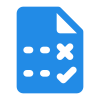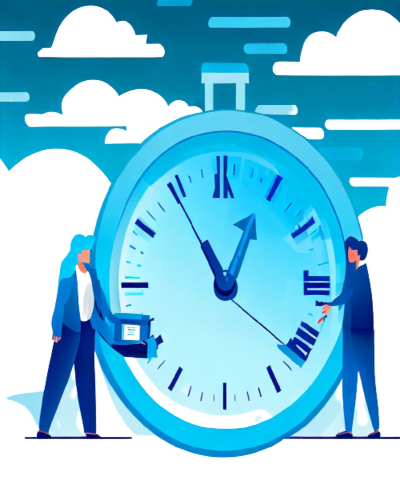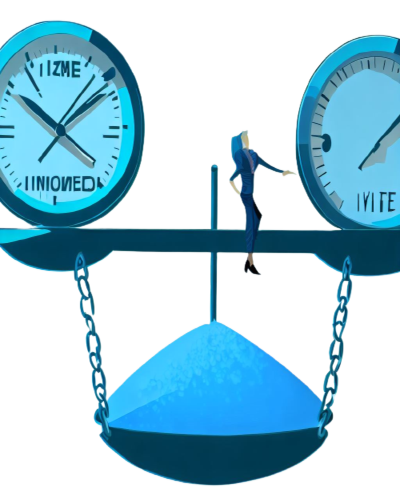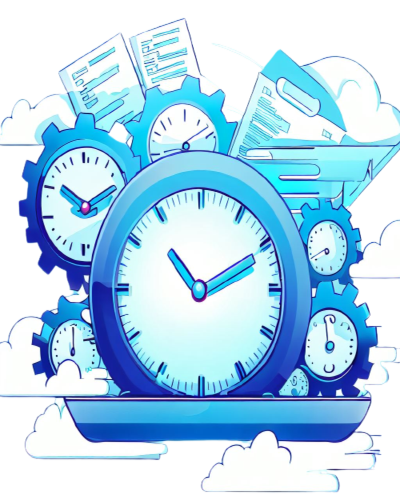What is the time tracking feature in Stats Software?
Employee monitoring software typically provides a range of features for time tracking to help businesses track and manage employee work hours, tasks, and productivity. Some common features include:
![]()
Time Clock
Employee monitoring software often includes a digital time clock where employees can log in when they start their workday and log out when they finish. This facilitates precise monitoring of working hours.

Real-Time Tracking
Employers can monitor employee activities in real-time, including which applications and websites employees are using. This feature helps identify potential distractions or unproductive behaviour.

Automatic Time Capture
Many monitoring tools automatically track the time employees spend on various tasks and applications without manual input. This is done by monitoring computer activity, including active windows and mouse/keyboard usage.

Screenshots and Screen Recording
Some software allows employers to capture screenshots or record employee screens periodically. This feature can help verify that employees are working on relevant tasks and projects.

Attendance Management System
In addition to tracking work hours, some employee monitoring tools also manage attendance. They can handle time-off requests, sick leave, and vacations.

Break and Idle Time Tracking
Monitoring software can track breaks and idle time to ensure that employees are taking appropriate breaks and not overworking.

Reporting and Analytics
Robust reporting features provide insights into employee productivity, time allocation, and work patterns. Employers can generate reports to analyze trends and make informed decisions.

Assist Payroll System
Stats employee monitoring systems provide details report for invoicing and payroll process, streamlining the billing and payment process, especially for freelancers and service-based businesses.

Alerts and Notifications
: Employers can set up alerts and notifications to receive updates on specific idle time events or when employees exceed predefined time limits on breaks.
It's important for businesses to select an employee monitoring software that aligns with their specific requirements and complies with relevant legal and ethical standards to ensure transparency and employee consent where necessary. Additionally, organizations should communicate their monitoring policies clearly to employees to maintain a healthy work environment.



